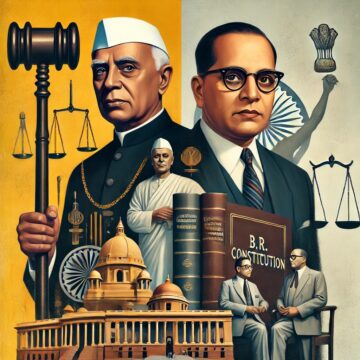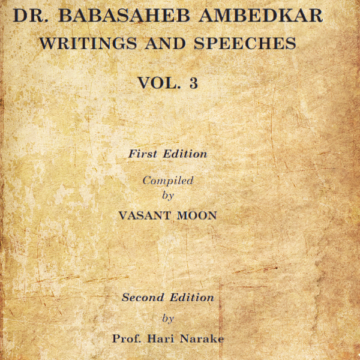Explore the profound insights of "Yoga Sutras’ Sleep Vritti" as we delve into Sutra 1.10, where sleep is not just rest but a transformative mental modification. This blog uncovers how understanding sleep as a vritti can enhance our meditation practices and lead to deeper spiritual and mental well-being.
Dattatreya’s Learnings From Pingla: Illusion of Desire and Value of Eternal
Explore 'Dattatreya's Learnings from Pingla,' where we delve into profound slokas that illuminate the illusion of desire and the value of the eternal. Discover how these ancient teachings, reflective of Dattatreya's dialogue with Pingla, offer timeless wisdom to guide our modern lives towards deeper self-awareness and spiritual fulfillment.
Yoga Sutras’ Vikalpa Vritti: Unraveling Mind’s Illusions
Explore the profound implications of "Yoga Sutras’ Vikalpa Vritti," a key concept that illustrates the mind's tendency to fabricate realities based on verbal delusions. This ancient wisdom not only enriches our spiritual practices but also offers practical insights into navigating the complexities of modern communication and personal relationships.
Guru Tegh Bahadur: Legacy of a Martyr
Explore the profound legacy of Guru Tegh Bahadur, whose martyrdom in 1675 marked a pivotal moment in religious history. This blog delves into how his ultimate sacrifice influenced Sikh and Hindu communities, advocating for righteousness, religious freedom, and the enduring power of interfaith solidarity.
Dattatreya’s Learnings: A Series on Vedic Wisdom and Modern Life
Explore "Dattatreya's Learnings" in our series that delves deep into Vedic wisdom and its practical applications in modern life. Discover how ancient teachings address contemporary issues like existential despair and the pursuit of true happiness, guiding us toward profound personal and spiritual growth.
Yoga Sutras’ Viparyaya Vritti: Misconceptions and Clarity
Explore the profound concept of Viparyaya Vritti from Patanjali's Yoga Sutras. This blog delves into the cognitive distortions of false knowledge, its implications for personal and spiritual growth, and practical techniques to cultivate true perception, enhancing clarity and reducing misconceptions in both yoga practice and daily life.
Second Battles of Panipat and Echoes of Valor
Dive into the pivotal battles that shaped Indian history—the First and Second Battles of Panipat. Explore how Hindu King Hemu's ambitions clashed with young Mughal emperor Akbar's forces, shaping the political and cultural landscape of the subcontinent. Understand the immediate aftermath and the enduring legacy of these historical encounters.
Bhagwan Dattatreya and Pingla: Story of Despair and Wisdom
Explore the profound journey of Pingla, a courtesan transformed by the wisdom of Bhagwan Dattatreya. From the depths of societal disdain to spiritual enlightenment, her story unveils the timeless truth that true fulfillment comes from within, offering lessons on detachment and the pursuit of inner peace.
Yoga Sutras’ Pramana Vritti: Exploring Sources of True Knowledge
Explore the profound concept of "Yoga Sutras’ Pramana Vritti" with insights into the mechanisms of perceiving and validating knowledge through direct perception, inference, and authoritative testimony. Discover how these age-old philosophies remain relevant today, guiding us toward clearer understanding and authentic reality interpretation.
Swami Dayanand Saraswati: The Luminary Founder of Arya Samaj II
This installment delves into Swami Dayanand Saraswati's profound impact, examining his revolutionary writings and the societal changes following his demise. We explore how his teachings continue to inspire reform and discuss his significant role alongside contemporaries in shaping modern India's socio-political landscape.
Dayanand Saraswati: The Luminary Founder of Arya Samaj I
This blog explores Swami Dayanand Saraswati's profound influence as he founded Arya Samaj, advocating Vedic revival and societal reform. We discuss his life, teachings, and the Shuddhi movement, delving into how he inspired a rethinking of Hindu practices, championed gender equality, and laid the groundwork for modern educational reforms in India.
Dattatreya and Guru Madhuha: Insights from the Honey Collector
Explore the teachings of Dattatreya and Guru Madhuha in our ongoing series. This post delves into the lessons from the honey collector, highlighting the detrimental effects of greed and the importance of mindful resource usage, offering insights on living a balanced life in harmony with nature and society.
Yoga Sutras’ Five Vrittis: Mastering Mind Through Ancient Wisdom
Dive into the profound world of the Yoga Sutras to explore the five Vrittis—modifications of the mind that shape our perceptions and influence our spiritual practices. Understand how mastering these cognitive patterns can guide you toward clarity and inner peace, enhancing both your personal growth and your journey in yoga.
India-China Border Tensions: A Strategic Analysis
This blog provides a strategic analysis of the pivotal 1962 India-China conflict, exploring its profound impact on bilateral relations and regional geopolitics. It delves into Nehru's controversial leadership decisions, the immediate military responses, and the enduring lessons that shape today's strategic policies between the two Asian giants.
Dattatreya and Guru Gaj: Embracing Wisdom from the Elephant’s Teachings
Explore the profound teachings of Dattatreya and Guru Gaj, where the majestic elephant symbolizes restraint and wisdom. Bhagwan Dattatreya illustrates how unchecked desires, even in the mightiest, can lead to downfall, offering vital insights into self-discipline and ethical conduct.
Yoga and Vritti Types: Navigating Mental Modifications
Dive into the profound world of Patanjali’s Yoga Sutras with our latest exploration on "Yoga and Vritti Types." This blog uncovers how understanding the five types of vrittis—painful and not painful—can transform your yoga practice and daily life, guiding you toward deeper self-awareness and mental clarity.
Ambedkar’s Buddhist Political Move: Divergence from Gandhi on Caste Issues
Ambedkar's Buddhist Political Move was not merely a spiritual choice but a profound critique of Hindu caste inequalities. Influenced by his differences with Gandhi and frustrations with Nehru's policies, this move marked a strategic realignment towards more assertive Dalit activism, fundamentally challenging both traditional Hindu structures and contemporary political frameworks.
Ambedkar’s Buddhist Conversion: Challenging Caste with New Faith
Dr. B.R. Ambedkar’s conversion to Buddhism was a monumental act that not only shifted religious identities but also challenged entrenched caste hierarchies in India. His decision, rooted in a profound critique of the caste system as institutionalized in Hindu doctrines, sparked a significant dialogue on equality and social reform.
Manusmriti Critique of Ambedkar and Its Modern Relevance
Dr. B.R. Ambedkar's critique of Manusmriti dissects its role in reinforcing outdated social norms and caste-based inequalities. This blog explores how despite its historical significance, Manusmriti's influence on modern Hindu practice and legal frameworks is minimal, urging a reflection on societal evolution towards more inclusive and equitable norms.
Ambedkar’s Criticism and the Manusmriti: Insights and Impact
Dr. B.R. Ambedkar’s criticism of Manusmriti highlights its role in institutionalizing caste hierarchies and gender inequalities. This blog explores the evolution from the varna system to a rigid caste framework, shaped by colonial policies and misinterpretations. It also examines modern legal reforms inspired by Ambedkar’s vision, promoting justice and equality in contemporary India.





















